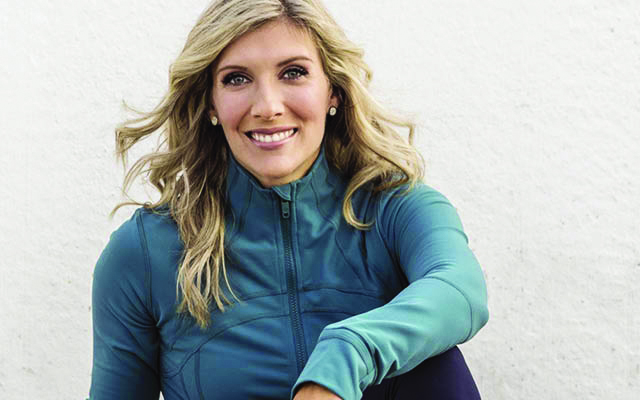I recently posted a photo on Instagram of my newest niece with the hashtag #threeweeksnew. I didn’t give it much thought until someone commented, “Best hashtag!” — which made me think about how we use words, and how they affect our views of ourselves and the world.
In this case, consider my use of the word “new” versus “old.” It’s a simple swap in an everyday phrase that accompanies age, and yet it put a fresh spin on the concept of time’s passing.
Between societal influences and our own perceptions, aging is a topic that many become sensitive to as the years add up. But would our perceptions around it change if we instead said, “85 years alive” or “85 years new”?
As I say these out loud, they do make me smile. There’s an implied wisdom, along with a bit of playfulness; they make me think of beginnings and possibilities rather than endings, which “old” is inevitably moving toward.
My point is, the language we use to talk about our experiences matters, whether it relates to age, fitness, nutrition, or something else. Way back in 2005, Experience Life published an article called “The Power of Language,” in which author Cat Thompson wrote the following:
Language has immense power, and its impact depends entirely on how we wield it.
Because words are so often used automatically and unconsciously, we have learned to treat them lightly. In daily conversation, we speak the majority of our words from habit, convenience, and social obligation rather than from clear intent.
If we realized the potential that language has to create and transform our lives, we would pay a great deal more attention to our utterances. We’d be as determined to get our language “in shape” as we are to master and hone our bodies.
When it comes to nutrition, food, and our eating habits, language is especially powerful. How we talk and think about our food experiences can influence — positively or negatively — our beliefs about ourselves and our sense of self-worth, as well as our
self-confidence.
For example, despite everything I know about the downsides of diet culture and food guilt, I still find myself too often characterizing foods as “good” or “bad,” or “healthy” or “unhealthy.” This judgment doesn’t leave much room for actually enjoying food or the company I may be with when I’m eating it.
That’s why I appreciate the guidelines the Experience Life team follows when we’re writing about nutrition and food (and about fitness and health overall). Instead of “should-ing” or guilting, we strive to use language that’s empowering and encouraging, giving readers the information and tools they need to be thoughtful about their own eating choices and habits.
That’s not to say we’ve been perfect with our usage; in fact, we’ve had many conversations over the years about why we use — or no longer use — certain words or phrases. Because just as times change, so too can the meanings and connotations of certain words.
As new research and social movements emerge, they can shift what we thought we knew, too. (For a peek at some of our latest food-culture language choices and the reasoning behind them, check out “Food Glossary”.)
So as you peruse our annual Food Issue, take a few minutes to consider the language you use around food and your relationship with it. What words could you delete, add, or amend that could elevate your food experiences? Shifting the narrative, even subtly, is a good starting point.



